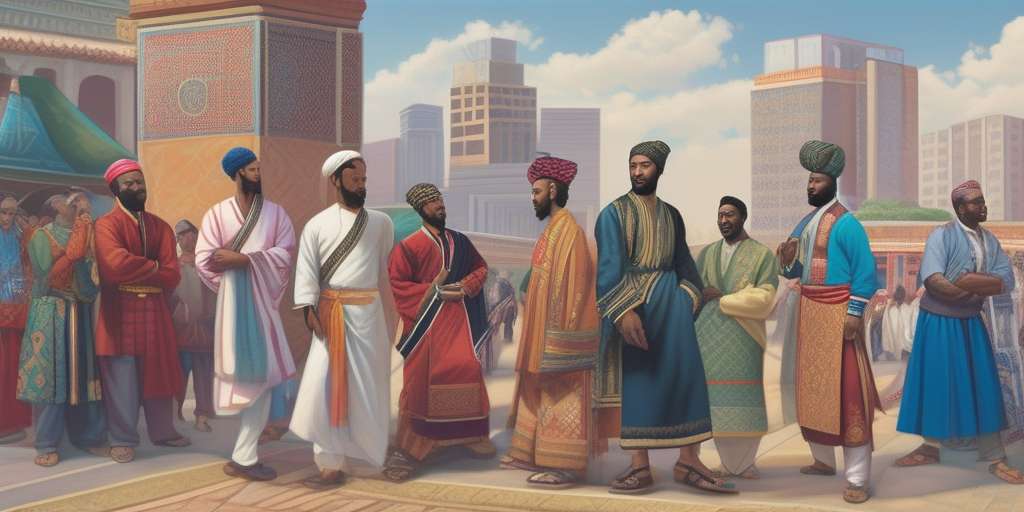The name Milton is mainly of English origin and is derived from ancient words meaning “mill town”. In this article, we tell you its meaning, its evolution from surname to first name and how it gained renown over time thanks to the poet John Milton.

Etymology and origin of the name Milton
The name Milton has a rich etymology that reveals its connection with English culture and its evolution throughout history. Their roots and meanings are explored below.
Old English voices: ‘mill’ and ‘town’
The term Milton originates from the combination of two Old English words: ‘mill’ and ‘town’. The word ‘mill’ translates as ‘mill’, a fundamental element in food production, while ‘town’ means ‘town’ or ‘city’. This conjunction gives rise to the interpretation of Milton as “mill people”, evoking an image of communities where milling was essential for subsistence.
English origin and its historical evolution
The use of Milton dates back several centuries, mainly in England. This name, which began as a surname, was used to identify those people who came from towns that had the same name. Over time, it became a name of its own, maintaining its popularity at various times. Milton’s transition from a surname to a given name reflects notable sociocultural changes in English society and its acceptance in other contexts.
Milton as a surname: A historical journey
The surname Milton has been widely documented in historical records, especially in England. Many notable individuals have borne this surname throughout history, contributing to the rich tradition that is associated with it. Figures such as the poet John Milton, author of ‘Paradise Lost’, have given prominence to the name, cementing its legacy in letters and culture.
Comes from the town: Agricultural meaning
The etymological interpretation of the name Milton is deeply linked to its agricultural context. Mills played a crucial role in rural communities, being a symbol of work, effort and production. Therefore, the meaning of Milton not only refers to a geographical location, but also reflects the importance of work in the community and family sustenance. This agricultural background adds a significant dimension to the understanding of the name, always remembering the effort and dedication of those who have carried this name throughout history.
Meaning and symbolism of the name Milton
The name Milton carries with it a deep meaning that has been forged throughout history. This meaning is not only etymological, but also symbolic, reflecting characteristics and aspirations that transcend its use in different cultures.
Milton: What does the name mean?
The name Milton comes from Old English, where it breaks down into ‘mill’, meaning ‘mill’, and ‘town’, meaning ‘town’. This etymology suggests a connection with the agricultural community and food production, as mills have been essential elements in rural life. Its meaning can be interpreted as ‘mill people’ or ‘those who come from the mill’, which gives it a significant historical dimension that evokes traditions of work and collaboration.
- Related: Meaning of the name Aylin
Meaning and origin: Cultural reflections
Culturally, the name Milton has been adopted in various regions, which has enriched its interpretation. In many societies, the mill has symbolized transformation and sustenance, adding layers of meaning to the name. In more contemporary contexts, Milton can be seen as a symbol of ambition and desire for progress, reflecting the struggle for identity and personal growth.
In literary tradition, the name has been linked to influential figures such as the poet John Milton, whose work has left an indelible mark on literature. Thus, Milton is associated not only with a place name, but with a cultural legacy that resonates with the search for wisdom and human expression.
Milton and the search for truth
The symbolism of the name Milton extends to the pursuit of truth and justice. People with this name tend to seek honesty and often display a strong work ethic. This inclination towards what is true implies a desire to understand the world as it is, which leads them to be critical and reflective in their daily lives.
The desire for justice that emanates from the name is a reflection of the historical environment in which it was developed. Through the centuries, the figure of the mill has not only served as a means of production, but has also represented a place of meeting and dialogue between communities. Therefore, the name Milton may be associated with individuals who advocate fairness and sincerity in their lives and relationships.
Popularity of the name Milton
The name Milton has experienced several ups and downs in terms of popularity over the years. Its cultural resonance, along with its significant etymology, has contributed to its presence in different contexts and regions. Below, the popularity trends of the name in various parts of the world and particularly in Argentina are explored.q
The name Milton, although of English origin, has found its way into many cultures around the world. In countries like the United States, its use has been more constant in the last century. Statistics indicate that, in the 1950s, Milton was considered a popular name among newborns, although its use has declined over time.
Milton in Argentina: An analysis of popularity
In Argentina, the name Milton has had an interesting journey. From data collected from name records from the year 1922 to 2015, a fluctuating pattern in its popularity has been observed. The year 1992 was a high point, with notable acceptance among parents who were looking for names with a similar sound and that provided a contemporary feel.
Names similar to Milton
On the naming front, it’s interesting to note how similar names have gained popularity alongside Milton. Names like Matías and Maximiliano have been quite popular in Argentinashowing a preference towards names that convey strength and character.
Personality and characteristics of the name Milton
The name Milton is associated with a series of personality traits and characteristics that have been established throughout history. These qualities can influence the behavior and decisions of those who bear this name.
- Related: Meaning of the name Santi
Associated general features
People named Milton are usually seen as ambitious individuals with a great desire to achieve perfection in their activities. This focus on continuous improvement translates into a strong work ethic and remarkable dedication to his projects. They are generally described as dreamers, with a broad outlook on life and a constant desire to explore new possibilities.
Other associated features include:
- Loyalty: The Miltons are considered loyal friends and partners, allowing them to forge long-lasting and meaningful relationships.
- Creativity: They have an active imagination, which drives them to create and innovate in various fields.
- Empathy: They have the ability to understand and connect emotionally with others, which makes it easier for them to establish deep bonds.
- Search for stability: They tend to look for relationships that provide them with balance and emotional security.
Numerology of the name Milton
In the field of numerology, the name Milton is associated with certain numbers that reflect particular characteristics. The number 7 is the one commonly linked to this name, symbolizing introspection and the search for knowledge. People with this numerical vibration are considered to be analytical, reflective and have a deep desire to understand the world around them.
Numerological characteristics also include:
- Diligence: Consistency in your efforts translates into significant achievements.
- Emotionality: Their emotional sensitivity allows them to connect with the feelings of others.
- Leadership ability: Your ability to guide and motivate others is evident in group contexts.
Influence of astrology: Gemini and others
Astrology also plays a role in the personality of those who bear the name Milton. This name is often associated with the sign of Gemini, known for its curiosity and ability to communicate ideas effectively. Geminis tend to be versatile, adapting to different situations and showing a great capacity for learning.
People under this sign are described as:
- Communicators: Their ability to express themselves makes it easier for them to establish meaningful connections with others.
- Adaptable: They have the ability to adjust to new circumstances with ease.
- Intellectuals: Their inquisitive mind leads them to explore a wide range of knowledge and topics.
Milton in culture and history
The name Milton has left a significant mark on culture and history. From its use in literature to its association with various figures, its legacy goes beyond a simple name.
John Milton and his literary legacy
John Milton, one of the most influential writers in English literature, is perhaps the most recognizable figure associated with the name Milton. Born in 1608, his masterpiece, “Paradise Lost”, is an epic poem that explores themes such as the fall of man, freedom and redemption. Milton writes in a rich and complex style that has left his mark on world literature.
His life was marked by the defense of freedom of expression and his firm opposition to oppression. He was a defender of republicanism, which led him to actively participate in the politics of his time. Through his poetry and prose, he emphasized individual rights and the importance of questioning authority, thus contributing to critical thinking about society and religion.
- Related: Meaning of the name Abdiel
Milton’s impact on literature is irrefutable. His innovative use of language, along with his exploration of philosophical and theological themes, has influenced countless authors and thinkers over the centuries. His legacy endures, and his name is inextricably associated with a search for truth and justice in literary culture.
Notable figures with the name Milton
In addition to John Milton, various personalities have carried the name Milton and contributed to different fields, increasing the cultural relevance of the name over time. These figures have not only carried the name, but have also helped shape and enrich its meaning in society. Among the most notable are:
- Milton Friedman: American economist, winner of the Nobel Prize in Economics, recognized for his work in economic theory and his defense of liberalism. Its influence extends through economic policy and reforms that have endured over time.
- Milton H. Erickson: An innovative psychiatrist and physician, known for his contributions to the field of hypnotherapy. His practical approach has transformed psychology, enabling a new way of treating psychological disorders, leaving a significant legacy in modern therapy.
- Milton Helmet: Argentine soccer player who has left his mark in sports, being a reference in his discipline. His career in professional football has made him a role model for many young athletes.
These figures, each in their respective field, have amplified the presence of the name Milton and its connection with success, intellectuality and creativity. Their collective legacy continues to reflect the characteristics and symbolism of the name in contemporary culture and history.
Translations and adaptations of the name Milton
The name Milton has been the subject of various translations and adaptations in different cultures and languages. This versatility highlights its ability to integrate into different traditions and contexts, maintaining its original essence.
Translation of the name in different languages
Over time, the name Milton has been translated and adapted into several languages, reflecting its globalization and acceptance.
Below are some of the most notable translations:
- Hebrew: מילטון
- Russian: Milton
- Korean: 밀턴
- Arab: ميلتون
- Chinese: 米尔顿
- Japanese: ミルトン
Cultural adaptations of the name
Milton has not only been translated, but has also found various cultural adaptations over the years. These adaptations include not only variations in writing, but also in their use and association in different contexts.
- Use in literature: The influence of literary figures such as John Milton has caused the name to be associated with literary culture in many regions. His legacy has made the term Milton turnips of great cultural relevance.
- Popularity in media: With the increase in globalization, the name Milton has begun to appear in various audiovisual productions and in contemporary literature, which has increased its visibility and acceptance in new cultures.
- Variations in writing: Although Milton remains relatively consistent in different languages, there are times when it can be found in more local variants that facilitate its pronunciation and writing adapted to the linguistic customs of each region.








